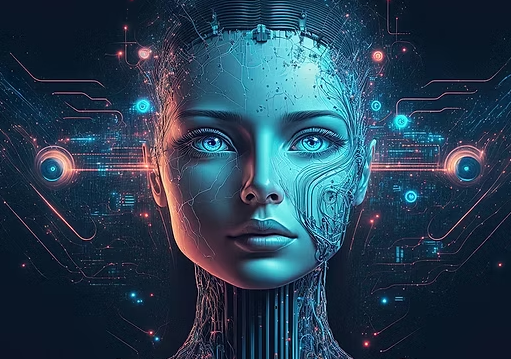The AI Revolution: Transforming Our World
As technology continues to advance at breakneck speed, the artificial intelligence (AI) revolution is reshaping every aspect of our lives, from how we work to the ways we communicate. Understanding this transformative force is essential, as it not only enhances efficiency but also raises important questions about ethics and the future of work.
Understanding AI: What It Is and How It Works
At its core, artificial intelligence refers to the simulation of human intelligence in machines, allowing them to perform tasks that typically require cognitive functions such as learning, reasoning, and problem-solving. Key technologies driving this revolution include machine learning, natural language processing, and neural networks. These advancements empower AI systems to analyze vast amounts of data, identify patterns, and make predictions—capabilities that are increasingly being adopted across various industries. For example, in healthcare, AI algorithms analyze patient data to assist doctors in diagnosing diseases more accurately and swiftly than ever before.
AI in Everyday Life: From Smartphones to Smart Homes
AI is already a part of our daily lives, often in ways we don’t even realize. Virtual assistants like Siri and Alexa use voice recognition and natural language processing to respond to our queries, while recommendation algorithms on platforms like Netflix and Amazon suggest content based on our preferences. Additionally, smart home devices can optimize energy usage, enhancing convenience and sustainability. As these technologies evolve, we can expect even greater integration of AI into our personal and professional environments, making our lives easier and more efficient.
The Ethical Dilemmas of AI Advancement
While the benefits of AI are abundant, they also come with significant ethical considerations. Issues such as job displacement, privacy concerns, and algorithmic bias pose real challenges that society must address. As automation takes over mundane tasks, the workforce may face upheaval, necessitating reskilling and adaptation to new roles. Equally important is the need for transparency in how AI algorithms operate to ensure fairness and accountability. Engaging in discussions about these ethics is crucial for fostering a future where AI serves humanity positively and responsibly.
In conclusion, the AI revolution is an exciting and complex phenomenon shaping our world. By exploring its potential and pitfalls, we equip ourselves to navigate this transformative landscape. To learn more about AI and its implications for the future, consider taking an online course, attending workshops, or joining discussions in community forums. Embrace the knowledge, and be part of the conversation that will define our AI-driven future!

